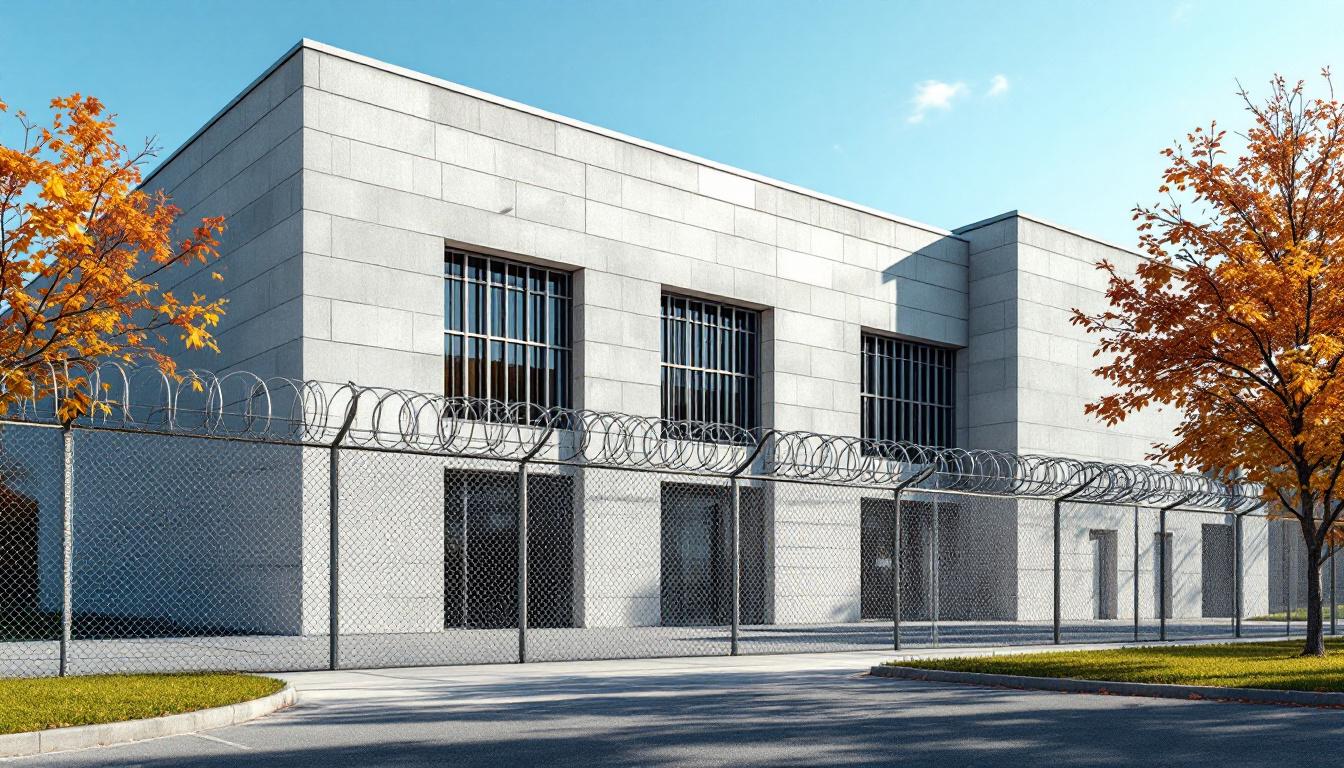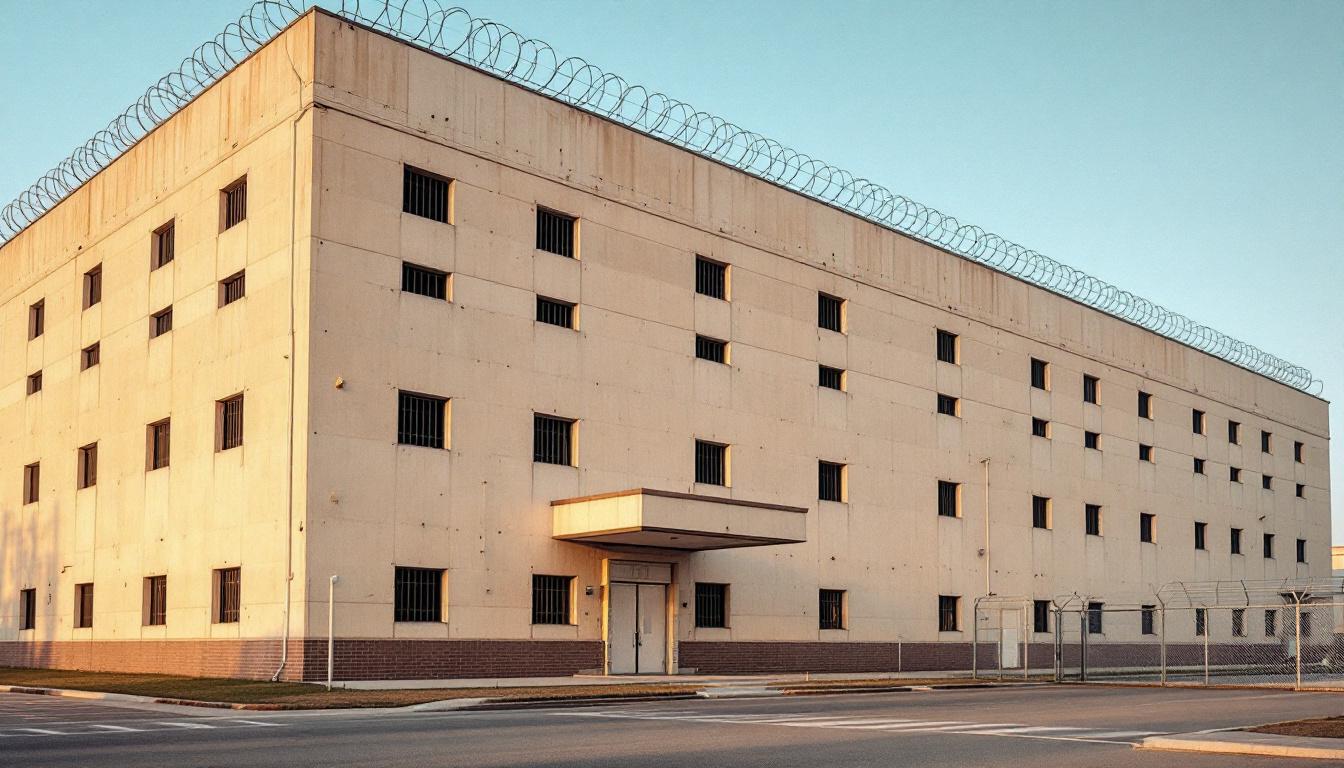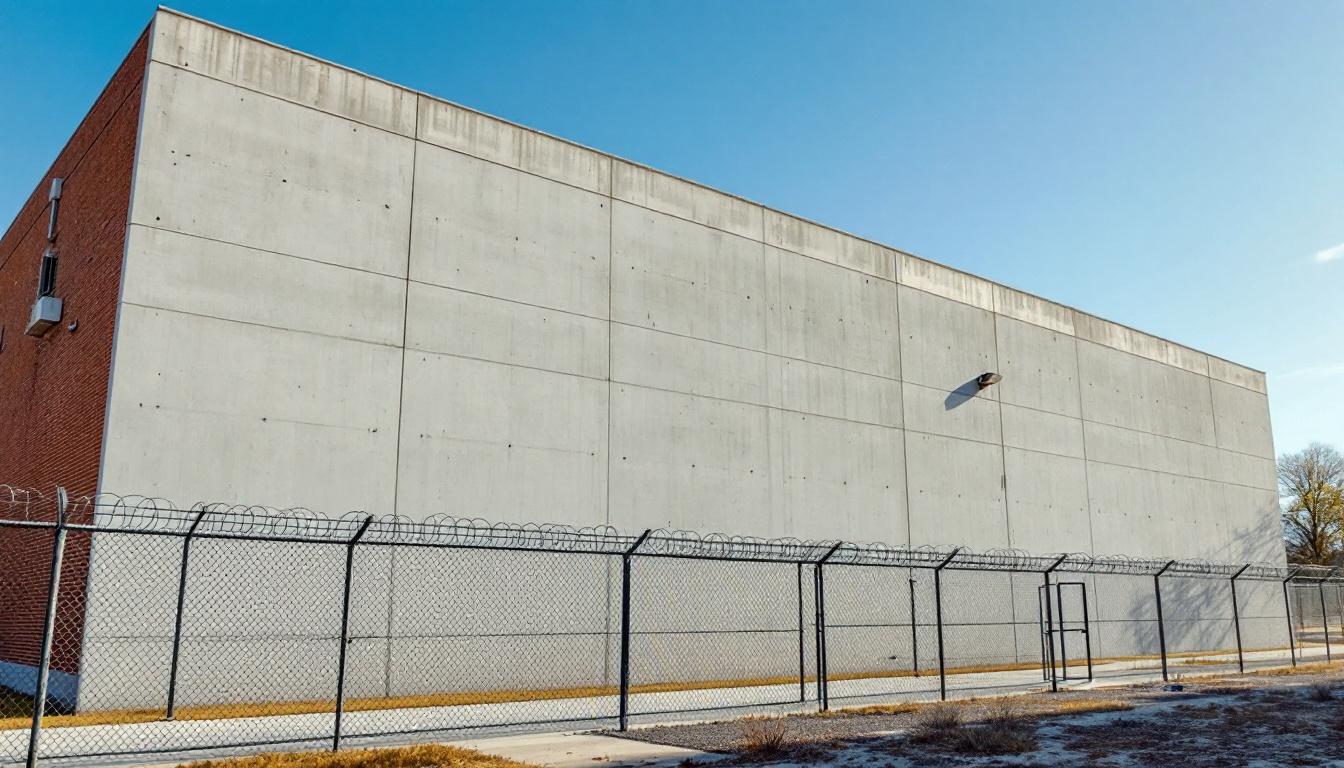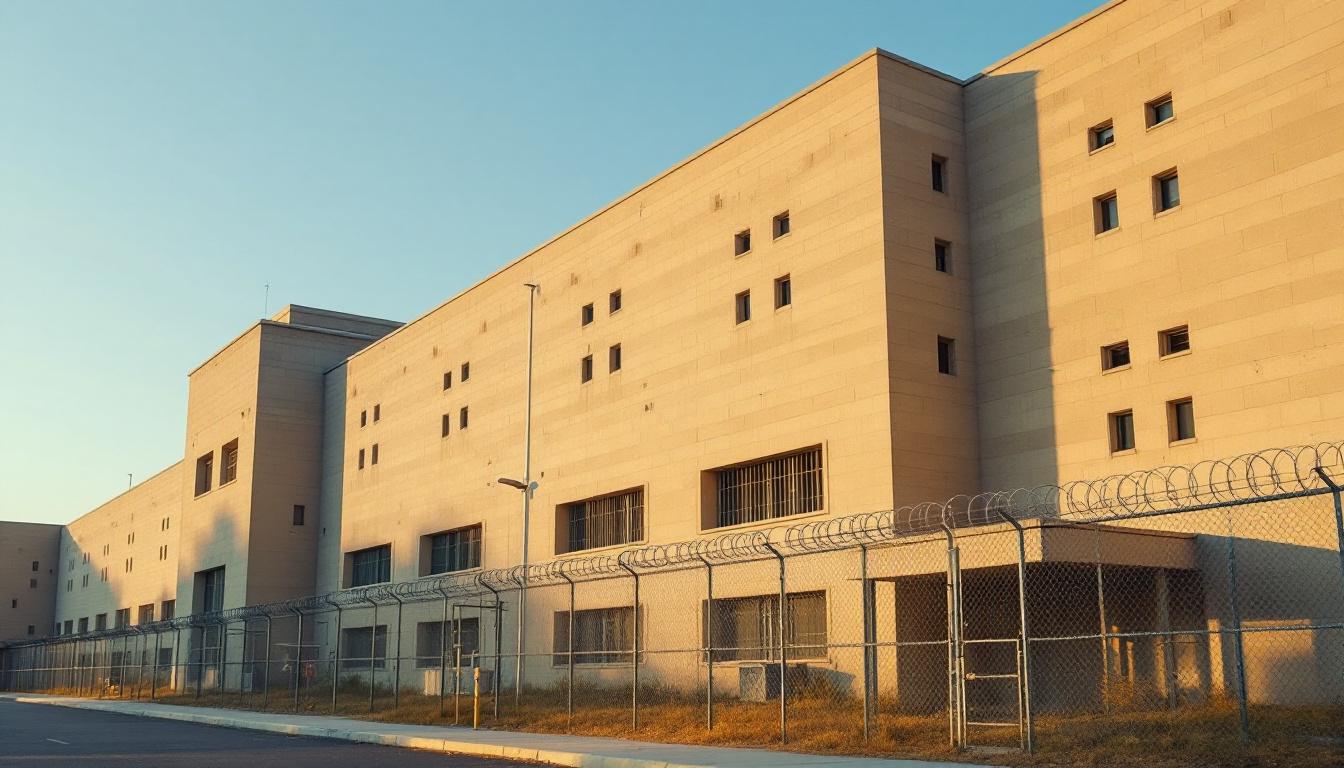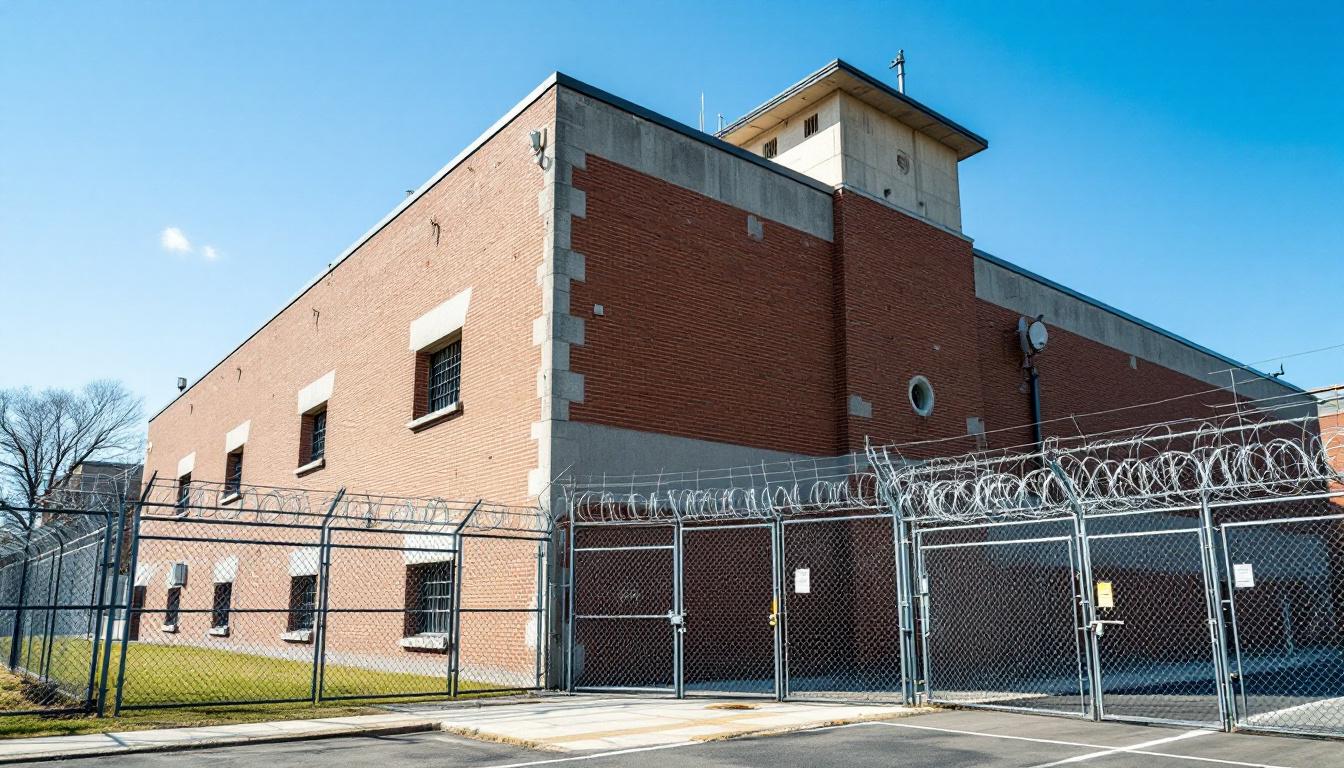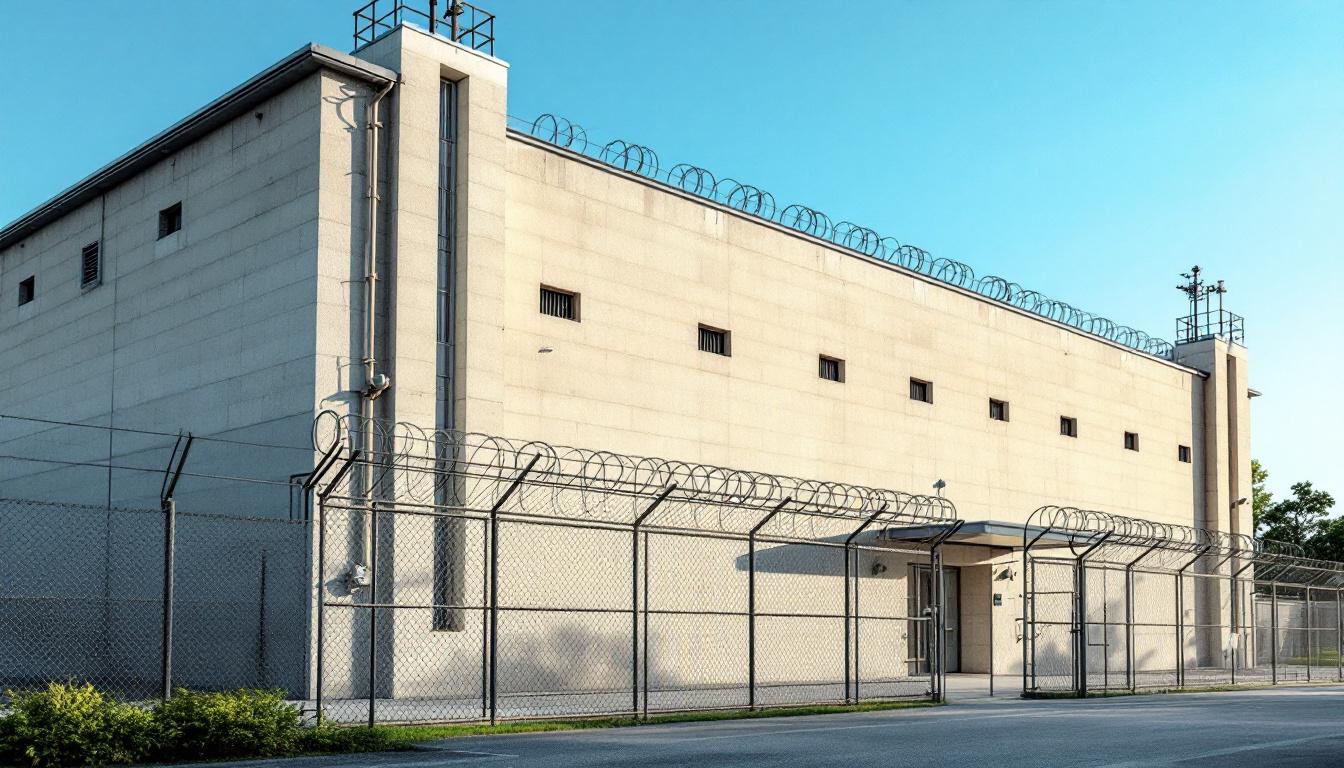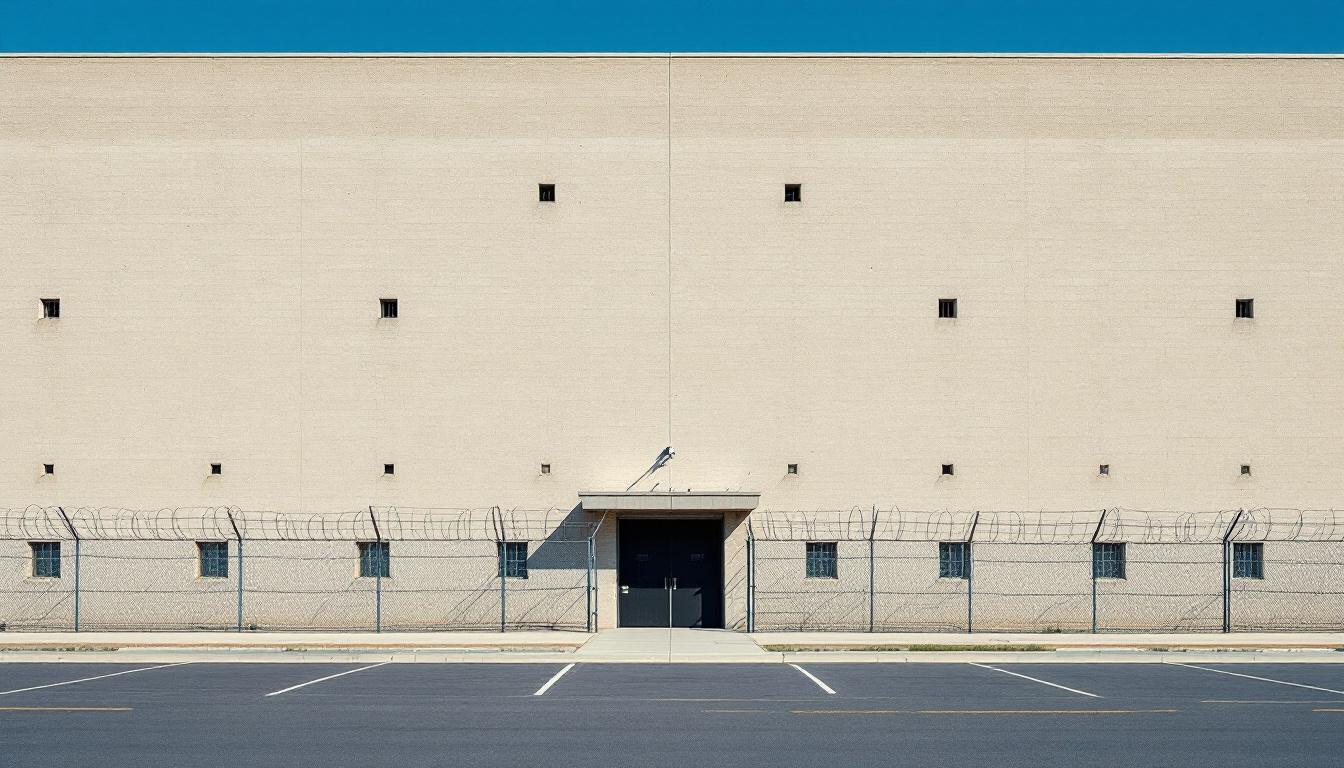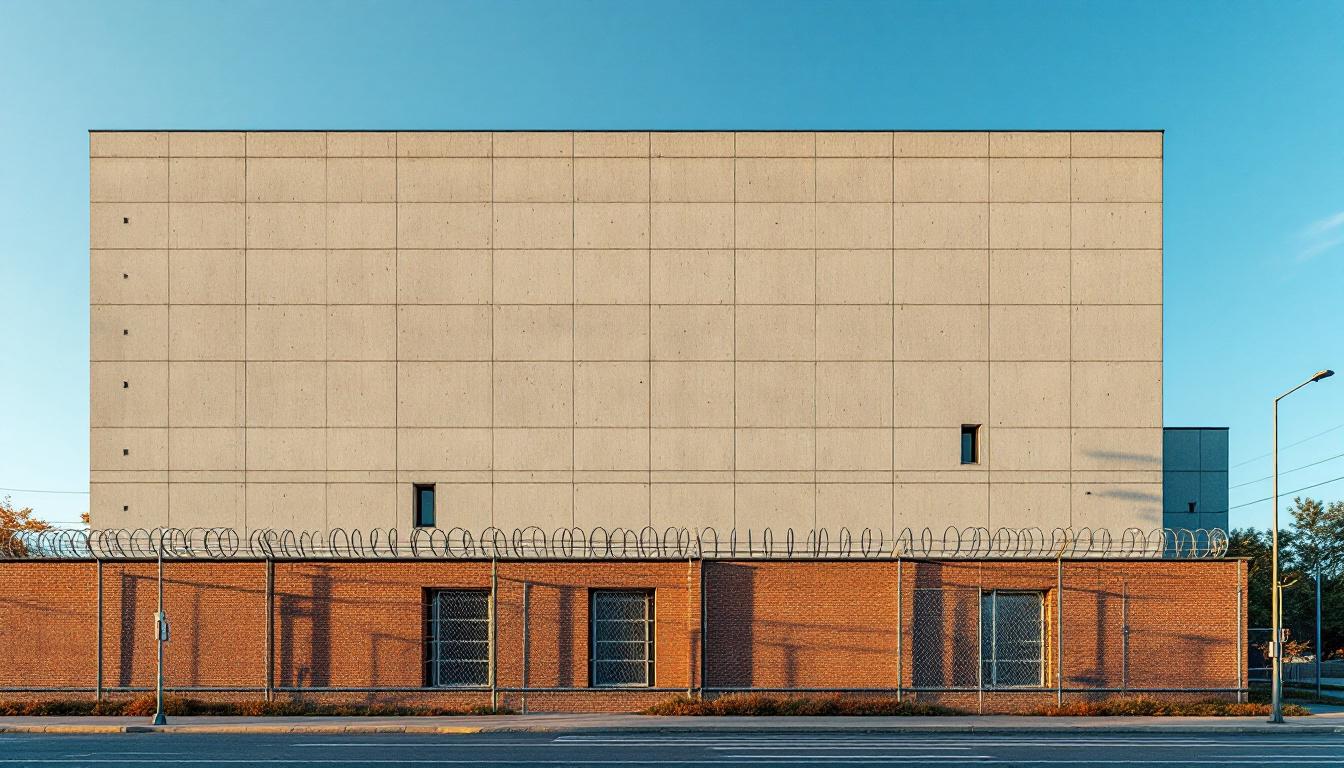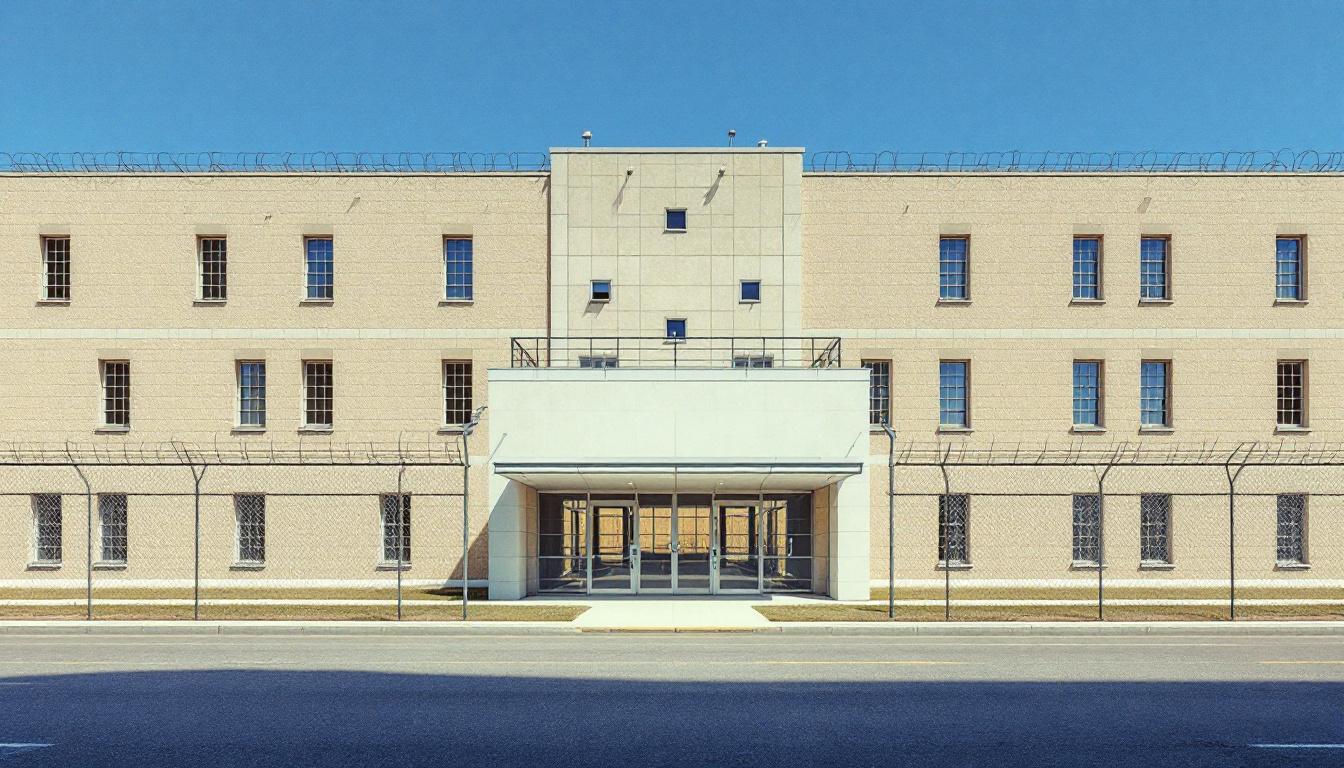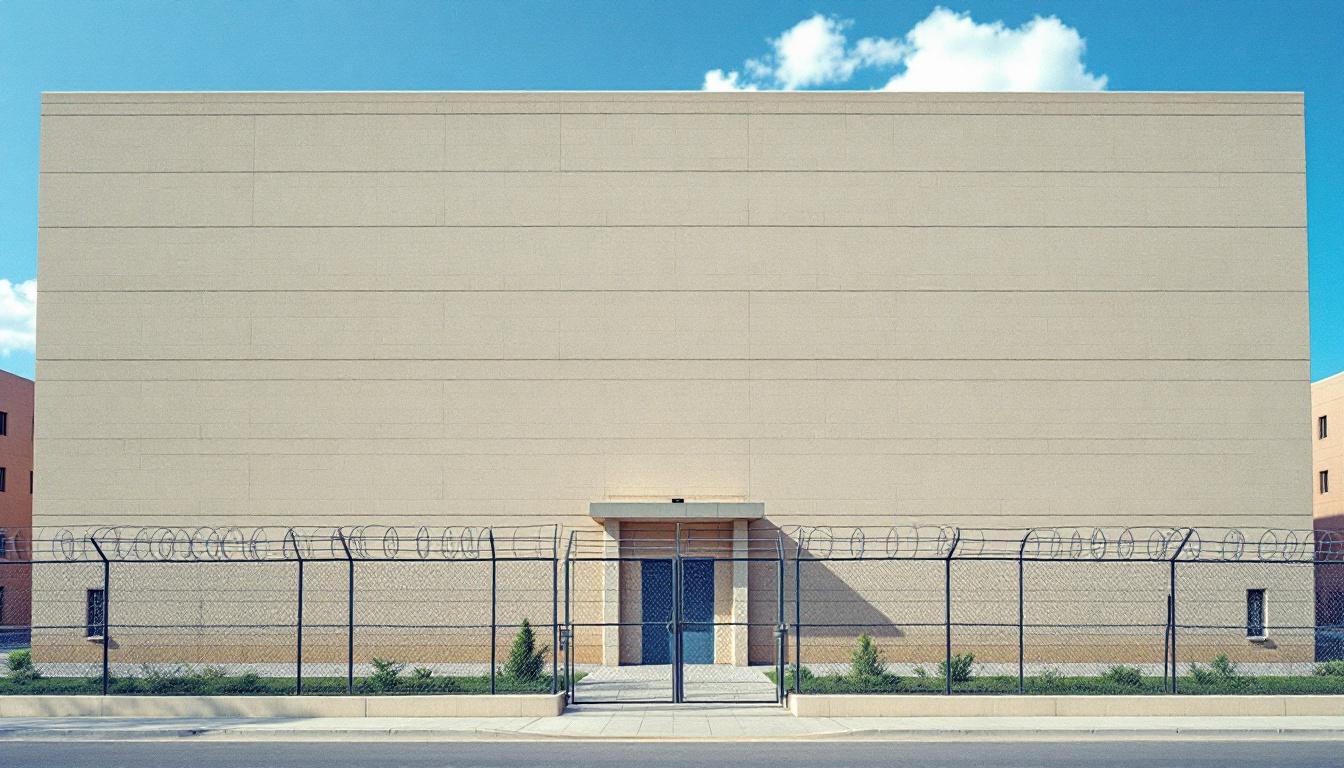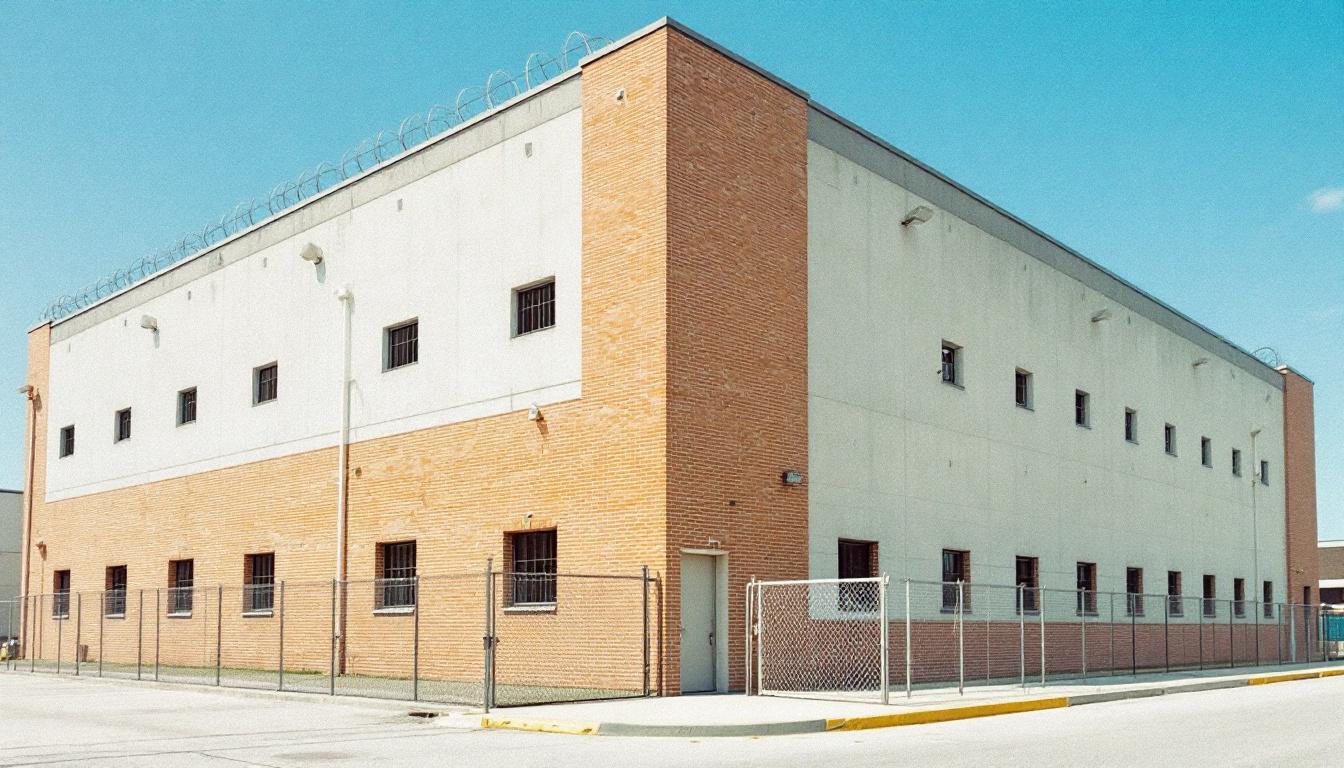
Quick Navigation
How to contact an inmate at The Alachua County Jail
This comprehensive guide will walk you through how to connect with an inmate at The Alachua County Jail. Follow the steps below to find an inmate and send letters and photos:
- Search for the inmate using our search tool below
- Create your account or log in to Penmate
- Write your message (up to 6,000 characters)
- Send instantly - inmates receive printed copies daily
Find an Inmate
Search for an inmate to start communicating today
Tip: You can search by first name, last name, or inmate ID number
To contact a person at The Alachua County Jail start by searching for the person on the official facility website. Perform a search by following these steps:
- Step 1: Enter their first name and last name into the search form and click "Search"
- Step 2: Locate their inmate record
- Step 3: Write down their Inmate ID and any housing information provided
Important! Be sure to enter the person's full name. Nicknames should not be used.
How to Send Messages to Inmates

You can use your phone or computer to send emails, letters, and photos to an inmate. Messages are sent electronically to inmate tablets or kiosks at the facility. If you would like to send a message, start by searching for an inmate at The Alachua County Jail.
Sending Photos and Postcards

A great way to send love and support to a loved one at The Alachua County Jail is to send photos and postcards. It only takes a few minutes to send photos from your phone and it makes a huge difference. You can also mail postcards with words of support and inspiration, or design your own postcard for special moments like birthdays and holidays.
Important! Be sure not to send any explicit photos or they may not be approved by the facility. You can also use a photo printing app like Penmate to make sure your photos are printed at the correct size (4x6 or 3x5) and are mailed according to the rules and regulations of The Alachua County Jail.
Frequently asked questions about The Alachua County Jail
-
How long does it take to deliver a message?
If you're sending an email message your letter is usually delivered within 24-48 hours. For messages sent via mail you should expect delivery within 3-7 days. All messages will need be approved by The Alachua County Jail.
-
How much does it cost to send a message to The Alachua County Jail?
You can send a message free using your phone or mail a message via USPS for the price of a $0.60 stamp and envelope. You can also purchase credits or e-stamps from services starting at $1.99.
-
What services can I use to contact an inmate at The Alachua County Jail?
Penmate
You can use Penmate to send letters and photos to an inmate from your phone. It's an easy way to stay in touch during your loved one's incarceration. Use the inmate locator to find an inmate's location and contact information, then you can send messages within a few minutes.
Securus messaging
Securus may be another option for communicating with an inmate at The Alachua County Jail. You can create a friends and family account and purchase credits to send messages. All messages will be reviewed and must be approved by the facility.
JPay
Some county jails and state prisons may support sending messages with JPay. You must register an account with the system, find your loved one, and purchase stamps to send messages. For some locations you can also attach photos.
Smart Jail Mail
You may also check if Smart Jail Mail is available at The Alachua County Jail. Smart Jail Mail is operated by Smart Communications and has contracted with some state and county jails. After purchasing credits, your messages and photos are sent to the facility, printed out, and then handed out to your loved one.
-
What is the mailing address of The Alachua County Jail?
Mailing address:
The Alachua County Jail
3333 NE 39th Ave
Gainesville, FL 32609
Phone: (352) 491-4444Business hours:
- Monday: 6:00 AM – 11:00 PM
- Tuesday: 6:00 AM – 11:00 PM
- Wednesday: 6:00 AM – 11:00 PM
- Thursday: 6:00 AM – 11:00 PM
- Friday: 6:00 AM – 11:00 PM
- Saturday: 6:00 AM – 11:00 PM
- Sunday: 6:00 AM – 11:00 PM
-
What are the visiting hours at The Alachua County Jail?
Visiting hours at The Alachua County Jail vary by housing unit and security level. Generally, visits are scheduled on weekends and holidays, with some facilities offering weekday visits. Contact the facility directly at (352) 491-4444 or check their website for the current visiting schedule. Visits typically last 30-60 minutes and must be scheduled in advance.
-
What items are prohibited when sending mail to The Alachua County Jail?
Prohibited items typically include: cash, personal checks, stamps, stickers, glitter, glue, tape, staples, paperclips, polaroid photos, musical or blank greeting cards, hardcover books, magazines with staples, and any items containing metal or electronics. Only send letters on plain white paper with blue or black ink. Photos must be printed on regular photo paper (no Polaroids). Always check with The Alachua County Jail for their specific mail policies.
-
How do I send money to an inmate at The Alachua County Jail?
You can send money to an inmate at The Alachua County Jail through several methods: 1) Online using JPay, Access Corrections, or the facility's approved vendor, 2) Money orders mailed directly to the facility with the inmate's name and ID number, 3) Kiosks located in the facility lobby, or 4) Over the phone using a credit or debit card. Fees vary by method, typically ranging from $2.95 to $11.95 per transaction.
-
Can I schedule a video visit with an inmate at The Alachua County Jail?
Many facilities now offer video visitation as an alternative to in-person visits. At The Alachua County Jail, video visits may be available through services like Penmate, Securus Video Connect, GTL, or ICSolutions. Video visits typically cost $10-20 for 20-30 minutes and must be scheduled in advance. You'll need a computer or smartphone with a camera and reliable internet connection. Contact the facility for their specific video visitation policies and approved vendors.
-
What identification do I need to visit an inmate at The Alachua County Jail?
All visitors must present valid government-issued photo identification such as a driver's license, state ID, passport, or military ID. Minors must be accompanied by a parent or legal guardian who can provide the minor's birth certificate. Some facilities require visitors to be on the inmate's approved visitation list, which may require a background check. Contact The Alachua County Jail for specific ID requirements and visitor approval procedures.
-
How can I find out an inmate's release date?
To find an inmate's release date at The Alachua County Jail, you can: 1) Use the online inmate search tool if available, 2) Call the facility's records department, 3) Contact the inmate's case manager or counselor, or 4) Have the inmate provide this information during a call or visit. For privacy reasons, some facilities only release this information to immediate family members.
Facility Overview
Contact Information
The Alachua County Jail3333 NE 39th Ave
Gainesville, FL 32609
Phone: (352) 491-4444
Official Website
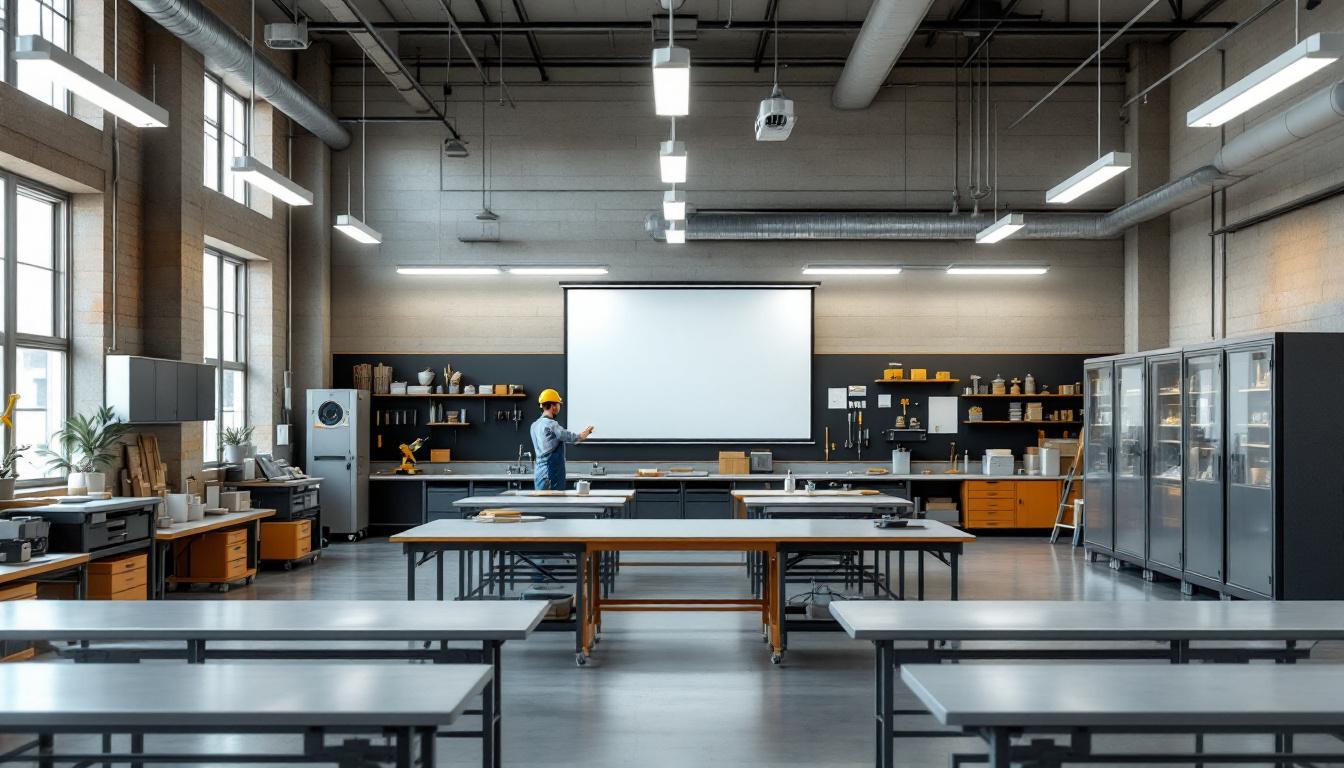
About The Alachua County Jail
Comprehensive reintegration services and evidence-based programming form the cornerstone of operations at Alachua County Jail, where individuals receive structured support designed to address underlying factors that may contribute to recidivism. Located in Greenville, Texas, this TX correctional facility operates within the broader framework of the state's regional corrections network, serving as a vital component in the justice system's approach to community safety and offender accountability. The facility typically maintains focus on connecting individuals with resources that may include educational opportunities, substance abuse counseling, and life skills development programs aimed at preparing residents for successful community reentry.
Within Texas's south region correctional landscape, the county jail functions as both a pre-trial detention center and a sentenced facility for individuals serving shorter-term commitments. Programming efforts generally emphasize practical skill development and behavioral intervention strategies, with services that may encompass vocational training opportunities, mental health support, and family reunification assistance. The facility's position within the regional network allows for coordination with community-based organizations and social services agencies, creating pathways for continued support following release. Through this integrated approach, Alachua County Jail works toward measurable outcomes in reducing repeat offenses while maintaining secure custody of individuals entrusted to its care, contributing to the overall effectiveness of Texas's correctional system in promoting public safety and individual rehabilitation.
Programs & Services
The multifaceted approach to individual development at Alachua County Jail in Texas encompasses a broad spectrum of opportunities designed to address the diverse needs of its population. Rather than adopting a one-size-fits-all methodology, the facility typically recognizes that meaningful rehabilitation requires comprehensive programming that addresses educational deficits, vocational skill gaps, and personal development challenges simultaneously. This holistic philosophy may create pathways for individuals to engage in structured activities that foster both immediate personal growth and long-term community reintegration success.
Educational and vocational opportunities often form the cornerstone of the facility's comprehensive programming structure. Vocational training initiatives may provide individuals with hands-on experience in various trades and technical skills that align with regional employment demands. These programs typically emphasize practical skill development while simultaneously building work ethic and professional competencies. Furthermore, work programs within the facility often serve dual purposes, maintaining operational efficiency while providing individuals with structured employment experience and transferable job skills.
The therapeutic and support dimensions of programming may encompass both individual healing and community-building initiatives. Group therapy sessions typically provide structured environments where individuals can address underlying issues that may have contributed to their incarceration while developing healthy coping mechanisms. Faith-based initiatives often offer spiritual guidance and community support networks, while parenting classes may help individuals develop or strengthen family relationships and child-rearing skills. Additionally, intramural sports programs typically promote physical wellness, teamwork, and constructive social interaction, contributing to overall mental health and facility cohesion.
Daily Life & Visitation
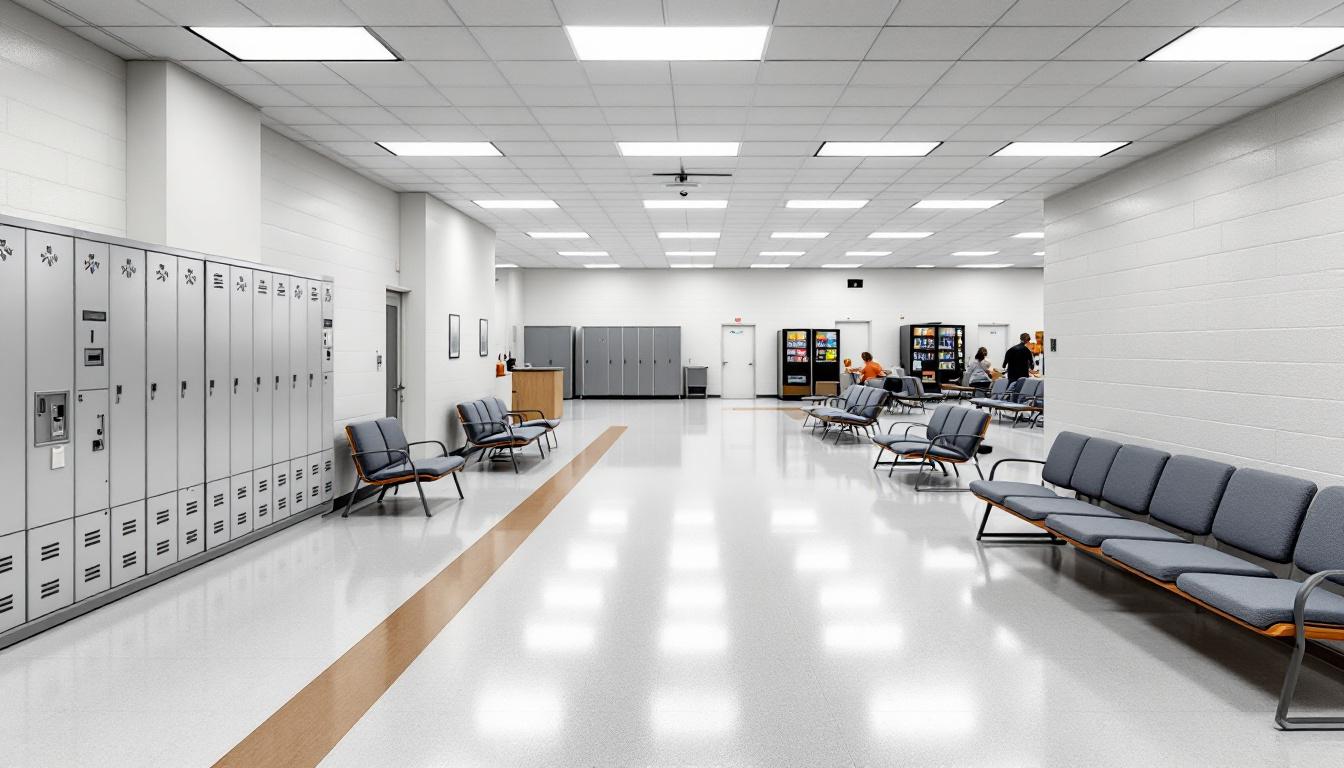
The sound of metal doors and institutional routines punctuates every hour, yet individuals at Alachua County Jail work to maintain personal dignity and connections within the structured environment. Daily life currently revolves around scheduled count times, meal service, and supervised activities that provide some measure of routine and purpose. The facility continues to operate under standard correctional protocols that balance security requirements with basic human needs, though the institutional nature of the environment remains a constant presence.
Living accommodations typically consist of shared cells or dormitory-style housing units where individuals must adapt to limited personal space and minimal privacy. Furthermore, personal belongings are generally restricted to essential items, with additional comfort items often available through the commissary system when funds permit. The dining arrangements usually involve scheduled meal times in designated areas, where individuals receive standardized portions that meet basic nutritional requirements, though the institutional nature of the food service may differ significantly from home-cooked meals.
Although the environment presents numerous challenges, various programs and activities offer structure and opportunities for personal development during incarceration. Recreation time may include access to outdoor areas, television viewing, and limited exercise opportunities, depending on facility scheduling and security considerations. Visitation policies typically allow for scheduled visits with family members and approved contacts, while telephone privileges and mail correspondence continue to serve as vital lifelines to the outside world. Work assignments within the facility often provide individuals with purposeful activities and may include kitchen duties, cleaning responsibilities, or maintenance tasks that help maintain facility operations while offering some structure to daily routines.
Ready to Connect?
Start communicating with your loved one today
Search for an Inmate
